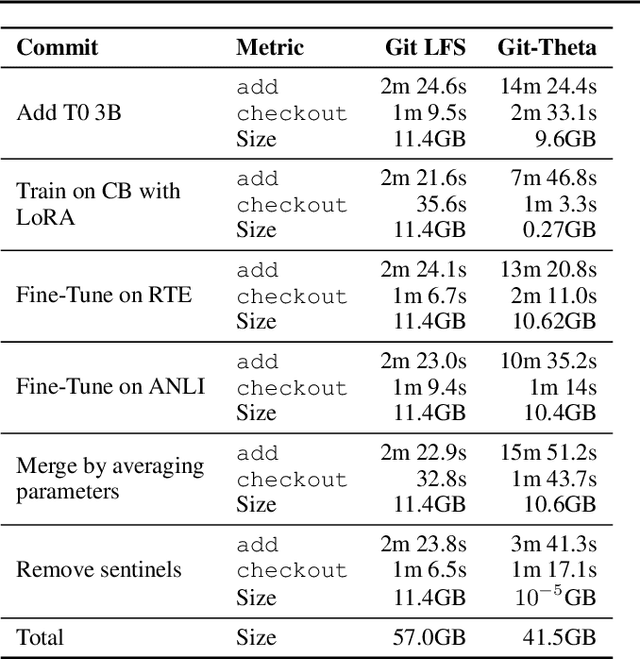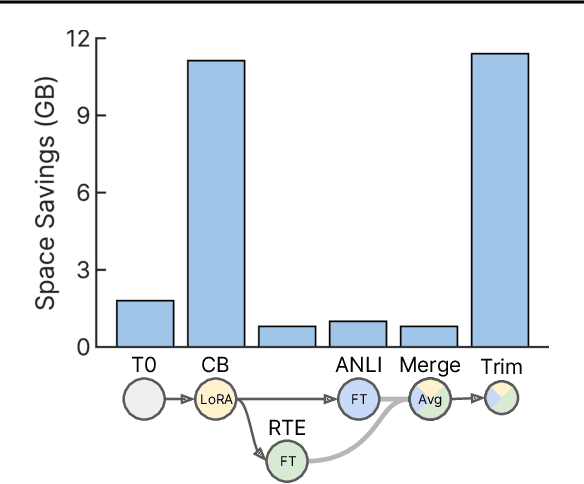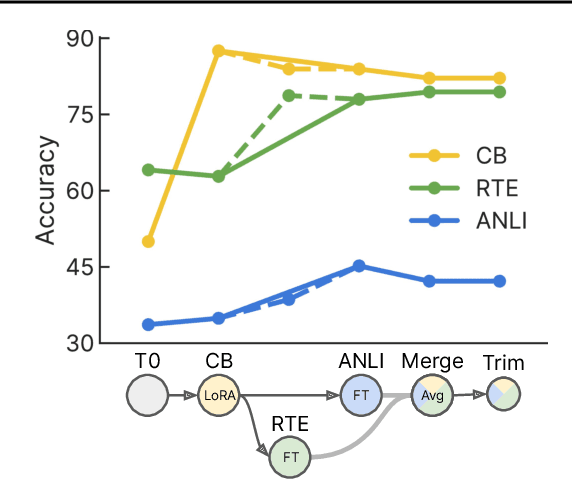Anisha Mascarenhas
Git-Theta: A Git Extension for Collaborative Development of Machine Learning Models
Jun 07, 2023



Abstract:Currently, most machine learning models are trained by centralized teams and are rarely updated. In contrast, open-source software development involves the iterative development of a shared artifact through distributed collaboration using a version control system. In the interest of enabling collaborative and continual improvement of machine learning models, we introduce Git-Theta, a version control system for machine learning models. Git-Theta is an extension to Git, the most widely used version control software, that allows fine-grained tracking of changes to model parameters alongside code and other artifacts. Unlike existing version control systems that treat a model checkpoint as a blob of data, Git-Theta leverages the structure of checkpoints to support communication-efficient updates, automatic model merges, and meaningful reporting about the difference between two versions of a model. In addition, Git-Theta includes a plug-in system that enables users to easily add support for new functionality. In this paper, we introduce Git-Theta's design and features and include an example use-case of Git-Theta where a pre-trained model is continually adapted and modified. We publicly release Git-Theta in hopes of kickstarting a new era of collaborative model development.
Evaluating the Factual Consistency of Large Language Models Through Summarization
Nov 15, 2022Abstract:While large language models (LLMs) have proven to be effective on a large variety of tasks, they are also known to hallucinate information. To measure whether an LLM prefers factually consistent continuations of its input, we propose a new benchmark called FIB(Factual Inconsistency Benchmark) that focuses on the task of summarization. Specifically, our benchmark involves comparing the scores an LLM assigns to a factually consistent versus a factually inconsistent summary for an input news article. For factually consistent summaries, we use human-written reference summaries that we manually verify as factually consistent. To generate summaries that are factually inconsistent, we generate summaries from a suite of summarization models that we have manually annotated as factually inconsistent. A model's factual consistency is then measured according to its accuracy, i.e.\ the proportion of documents where it assigns a higher score to the factually consistent summary. To validate the usefulness of FIB, we evaluate 23 large language models ranging from 1B to 176B parameters from six different model families including BLOOM and OPT. We find that existing LLMs generally assign a higher score to factually consistent summaries than to factually inconsistent summaries. However, if the factually inconsistent summaries occur verbatim in the document, then LLMs assign a higher score to these factually inconsistent summaries than factually consistent summaries. We validate design choices in our benchmark including the scoring method and source of distractor summaries. Our code and benchmark data can be found at https://github.com/r-three/fib.
 Add to Chrome
Add to Chrome Add to Firefox
Add to Firefox Add to Edge
Add to Edge